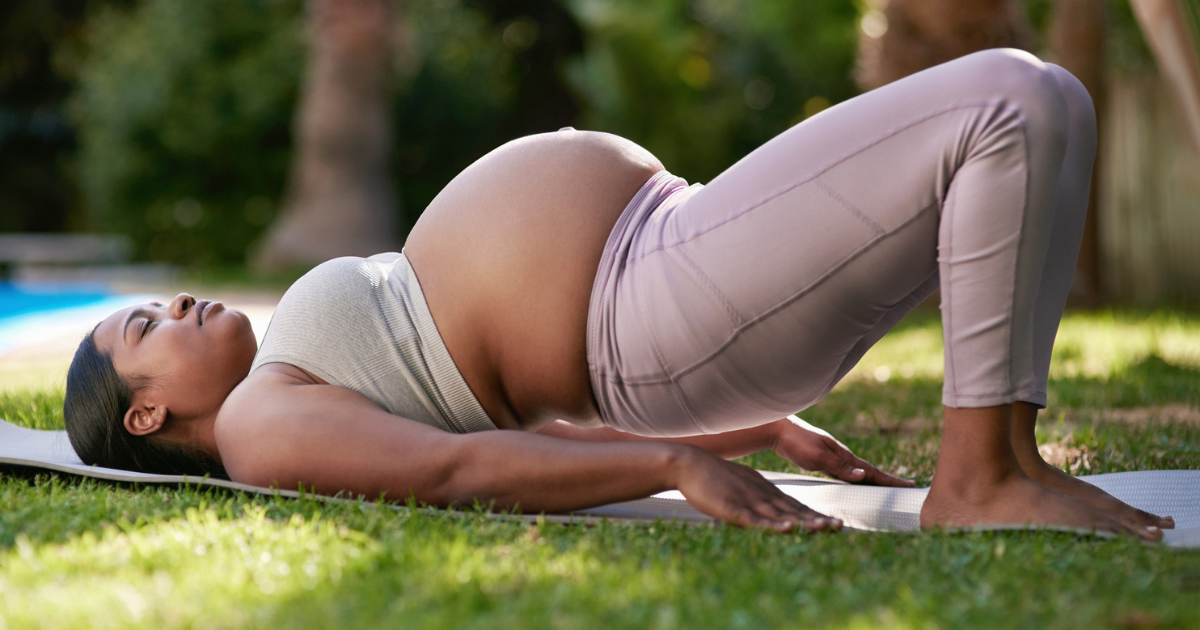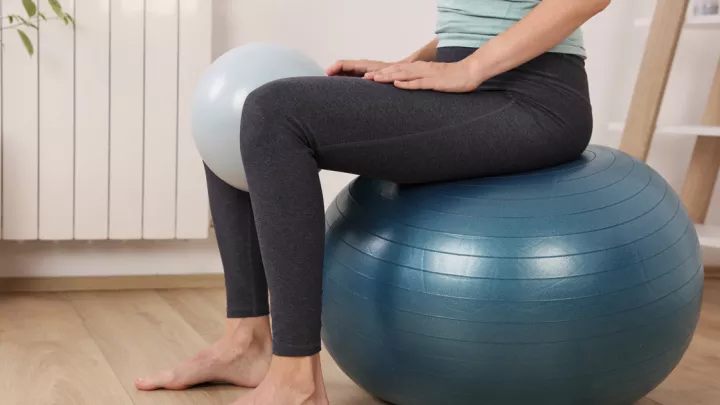Pregnancy and exercise: What you can (and can't) do safely

Pregnancy might seem like a good time to sit back and relax, but unless you're experiencing complications, sitting around won't help you or your baby.
In fact, pregnancy can be a great time to get active – even if you haven't exercised in a while. The Centers for Disease Control and Prevention recommends at least 150 minutes of moderate exercise every week or 30 minutes per day.
Below, we discuss the benefits of staying active and what you should and shouldn’t do during pregnancy.
Benefits of staying active during pregnancy
Exercising during pregnancy can:
- Boost your mood and energy levels
- Reduce back pain, constipation, bloating and swelling
- Encourage you to sleep better
- Help you maintain a healthy weight
- Decrease the risk of gestational diabetes, preeclampsia and varicose veins
- Ease labor and delivery
- Reduce the risk of having a C-section
Activities that are good for mom and baby
The following activities are generally considered safe during pregnancy:
- Stretching and toning – Bodyweight movements like pelvic rocking and Kegel exercises can help tone and prepare your body for delivery.
- Walking – Walking is great exercise and a good place to start if you haven’t been active for a while.
- Cycling – Cycling is a great low-impact exercise. But as your baby grows, your balance will change, so indoor cycling may be safer than biking outdoors.
- Modified Pilates – Pilates helps strengthen your muscles, including your pelvic floor. But it’s best to avoid twisting or laying on your back for prolonged periods, which can restrict blood flow.
- Running – If you were a runner before pregnancy, it’s likely safe to continue running. The movement will not harm your baby. However, if you never ran before, it’s not the best time to start due to the impact on your joints.
- Strength training – Walking the stairs, using resistance bands and lifting weights can help strengthen your body for birth. It’s best to do higher reps with lighter weights to avoid straining.
- Swimming – Swimming builds strength, improves circulation and increases endurance – all great things for labor and delivery.
- Modified yoga – Yoga can help reduce anxiety and improve sleep while preparing your body to give birth.
- Dancing – Dancing can help tone muscles and improve circulation during pregnancy.
Activities to avoid during pregnancy
While many activities are safe for pregnancy, there are a few you should avoid:
- Activities with a risk of falling – Your growing baby can alter your center of gravity, making it difficult to keep your balance. Avoid activities like skiing or horseback riding, which can increase your risk of falling.
- Contacts sports – Avoid contact sports like soccer, basketball or boxing, where you could be hit in the abdomen.
- High altitude exercise – High altitudes reduce oxygen to you and your baby. If you are going somewhere with an altitude of over 8,000 feet, allow four to five days to adjust before exercising.
- Hot yoga – Heat and pregnancy can be a dangerous combination, especially in the early weeks. Excessive heat can increase the risk of miscarriage and neural tube defects.
- Exercise classes not designed for pregnancy – Certain moves like twisting or compressing your abdomen, can be dangerous. Be sure your teacher offers pregnancy-appropriate alternatives.
- Scuba diving – Avoid diving when pregnant due to potential effects to the fetus.
Tips for staying active during pregnancy
Whether you choose to workout at home, outside or at the gym, the following tips can help you stay safe during pregnancy:
- Drink plenty of water before, during and after exercise
- Take it slow and avoid new or advanced postures
- Don’t exercise in extreme temperatures – and skip the sauna, hot tub and steam room
- Avoid lying on your back for too long, especially as you near the third trimester
- Wear a supportive bra and shoes
Stop the activity and contact your doctor or midwife if you:
- Feel dizzy or develop a headache
- Have trouble breathing
- Experience heart palpitations or chest pain
- Feel pain in your pelvis or tightening around your baby bump
- Notice a change in your baby’s movement
- Develop pain or swelling in your lower legs, or unusual muscle weakness
- Notice spotting, heavy bleeding or contractions
It’s always a good idea to discuss what you can and can’t do with your doctor or midwife before starting any exercise. For more information or to schedule an appointment with a women’s health expert, call 800.922.0000.







